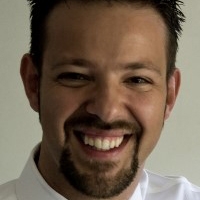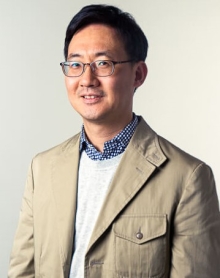

Exploring the physics of the world around us
Exploring quantum information technologies, quantum optics and foundations, and applied advanced materials
Research areas
Quantum Information Technologies
Our group aims to achieve the real-world implementation of quantum-enhanced technologies for applications in quantum information processing, quantum metrology and imaging.
Research topics
- Quantum computing, boson sampling, and quantum computational supremacy
- High-precision sensing and imaging
- Quantum communication
- Quantum dots (QD) electro-optical materials
Quantum Optics and Quantum Foundations
Our group aims at exploring the fundamental physics at the interplay between quantum optics with photons and atoms, complexity theory and general relativity.
Research topics
- Quantum interference
- Multiboson correlations and entanglement
- De Broglie-Bohm theory
- Quantum tests at the interface between quantum mechanics and general relativity
Applied Advanced Materials
The research undertaken focuses on the preparation of multi-functional materials and development of novel materials characterisation metrologies. Areas of applicability of our research include sensor technologies, data storage, energy harvesting and solid state cooling technologies.
Research topics
- Development of non-contact, non-destructive optical characterisation techniques of magnetic and magneto-resistive nano-thin films
- Fabrication of multiferoic ceramics and composite materials for novel applications
- Novel approaches to data storage technologies
Information Physics
The research undertaken focuses on all theoretical aspects of information and its role in the universe.
Research topics
- Information theory and information entropy
- Information in biological systems
- Genomics research using information theory
- Digital information technologies and big data
- Digital data storage technologies and devices
- Sustainable information technologies
Cosmology and Gravitation
A number of members of staff carrying out research in cosmology and gravitation also contribute to the Physics degree.
Environmental radiation
Research is focused on the impact of ionising radiation on biota at the individual level (genetic/physiological biomarkers) and on the ecosystem as a whole, modelling the transfers of very long-lived radionuclides in the biosphere and modelling of nutrient transport in rivers and their catchments.
Particle physics
Research has focused on the LHCb experiment at the Large Hadron Collider (LHC) at CERN, studying the subtle differences between matter and antimatter produced in proton-proton collisions and the OPAL experiment at the Large Electron Positron (LEP) Collider studying the decays of Z and W bosons (the weak force carriers) and measuring the number of light neutrinos. The photo-production of vector mesons using tagged photon beams from the CERN Super Proton Synchrotron and the NINA electron synchrotron at Daresbury Laboratory was the focus of earlier research.
New approaches
A recent focus has been on the development of new approaches to laboratory and practical work and the integration of active learning and employability across the new Applied Physics curriculum. A number of grants have been awarded to develop this work. Research has also been carried out into the use of “virtual on-line environments” to support active problem based learning involving international groups of students working on collaborative projects. Further work is exploring the effect on student experience and attainment of engaging in industry based projects. We have been working with Portsmouth Hospitals Medical Physics, Defence Science and Technology Labs and IRED.


